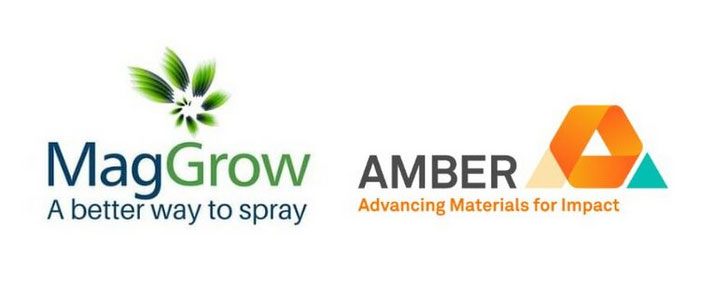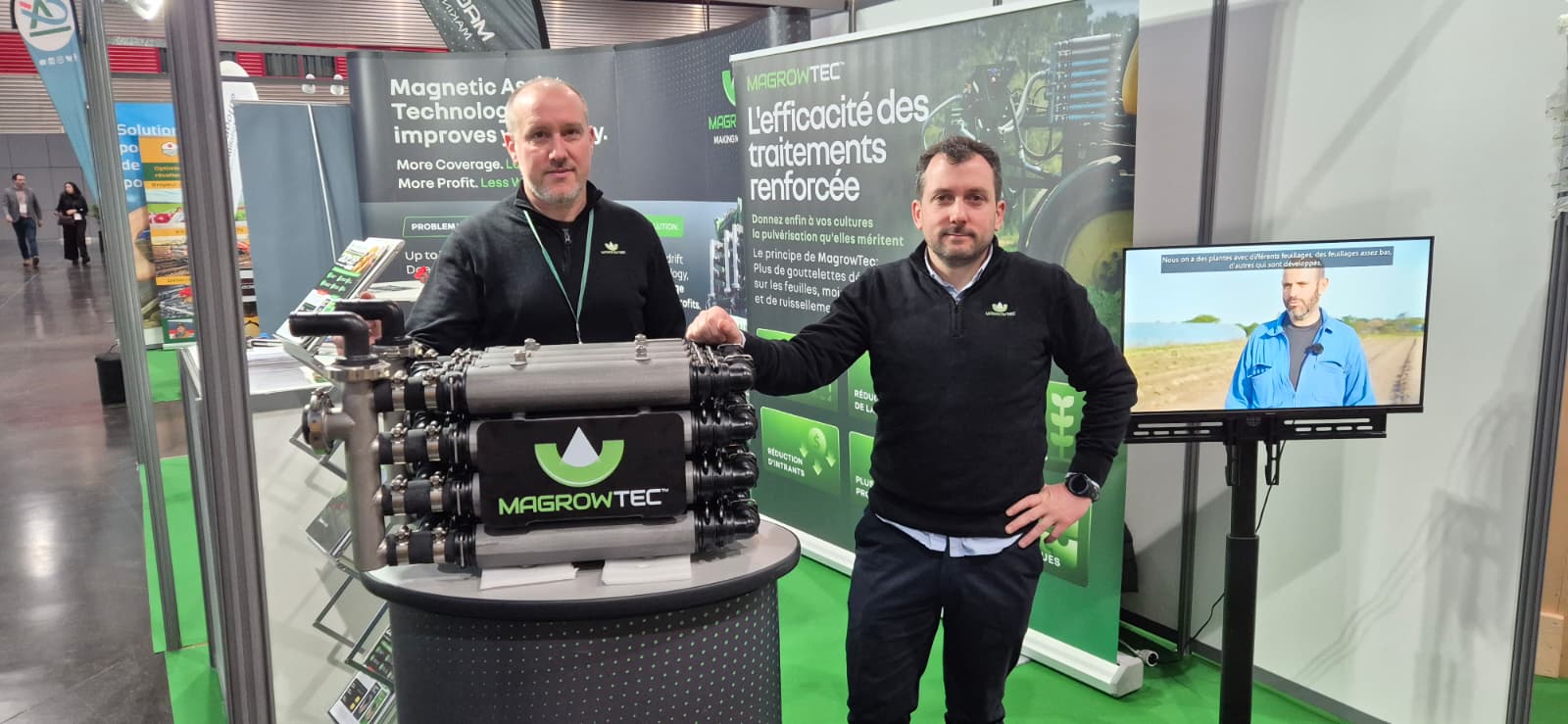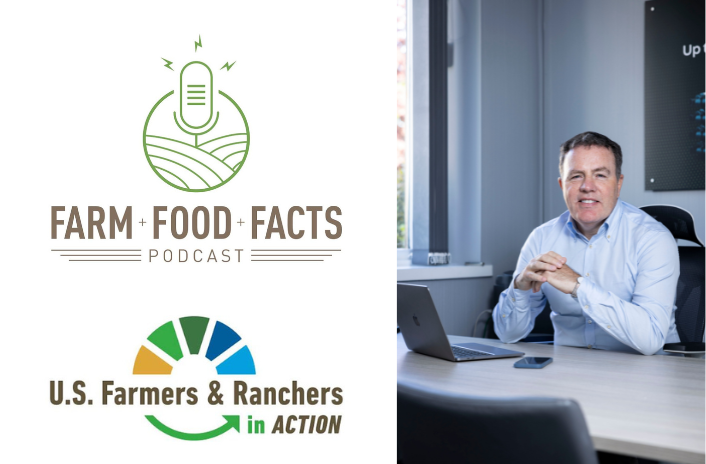
AMBER, the SFI Centre for Advanced Materials and Bioengineering Research hosted by Trinity College Dublin (TCD) is collaborating on a third project with MagGrow, an Irish SME based in Dublin, specializing in magnetic-assisted agricultural spraying.
The third collaborative project between AMBER and MagGrow will build upon previous successful projects that have yielded important results concerning the magnetic field effects upon agricultural spray performance. The new project acts as a platform to gain further insight into the MagGrow effect and opening novel areas for research and development to stimulate further commercial opportunities.
MagGrow’s technology reduces spray drift by more than 70%, delivers superior crop and weed coverage and reduces water usage by up to 50%. Farmers are all facing the same challenge, which is to grow more food, increase profitability and protect the environment. The only way this can be achieved is through sustainable intensification of food production and that’s where MagGrow technology steps in by using less land, labour, water, and pesticides to produce more food.
MagGrow’s deliberate science-based approach towards developing an effective technology has resulted in an easy to use, low-maintenance product that delivers a return of investment of less than a year.
In the MagGrow system, the spray-fluid passes through a magnetic field at specific flow rates so that the resulting spray has a droplet profile and droplet properties that facilitates increased coverage, reduced spray drift and reduced run-off from the plant canopy. Undesirable pesticide run-off and associated chemical costs are greatly reduced, while at the same time delivering better efficacy and pest and disease control.
The overall goal of the third jointly funded project with AMBER is to generate further knowledge concerning the magnetic effect attributed to the award-winning MagGrow spray technology. Extensive test facilities at the CRANN Research Institute at Trinity and in the field will be used to derive detailed droplet formation and flow data, followed by analysis using innovative imaging and analytical techniques. The year’s work will also include an investigation into the impact of various water parameters such as hardness and temperature, and the use of nanobubbles in spray media using a new laboratory-scale test rig within Trinity.
MagGrow’s engagement in a third project with one of the world’s leading authorities on magnets and magnetism, Prof. Michael Coey FRS, demonstrates the SME’s ongoing commitment to innovation through research and development. The project will enable MagGrow to explore and exploit scientific outcomes to create innovative solutions to global challenges of food security and the environment, including climate change, land-usage, water shortage and environmental pollution, extending to bio-geochemical flows, biodiversity, and other planetary boundaries. The very detailed scientific information derived through this study will provide MagGrow with the foundational theory to optimise existing products and develop the technology for other applications.
Prof. Michael Coey, AMBER and School of Physics, Trinity College Dublin, said: “We are delighted to enter our third project with MagGrow. It truly has become a joint endeavour, particularly with the recent appointment of Dr Karl Ackland, a former member of our TCD team, to MagGrow. The opportunity to extend our engagement with MagGrow in this project is exciting. Our aim is to use innovative and detailed analysis to test our hypothesis both in the laboratory and in the field, which
will help to optimize current technology and open new avenues that could prove vital for feeding everyone on Earth in the coming years.”
Dr Anthony Furness, MagGrow CSO said, “MagGrow is indeed fortunate to have the on-going support and scientific excellence that Professor Coey and the AMBER team bring to bear upon the MagGrow’s corporate leadership, commitment to research and continued growth as a technology company attuned to food security needs, the environment and sustainability.”




